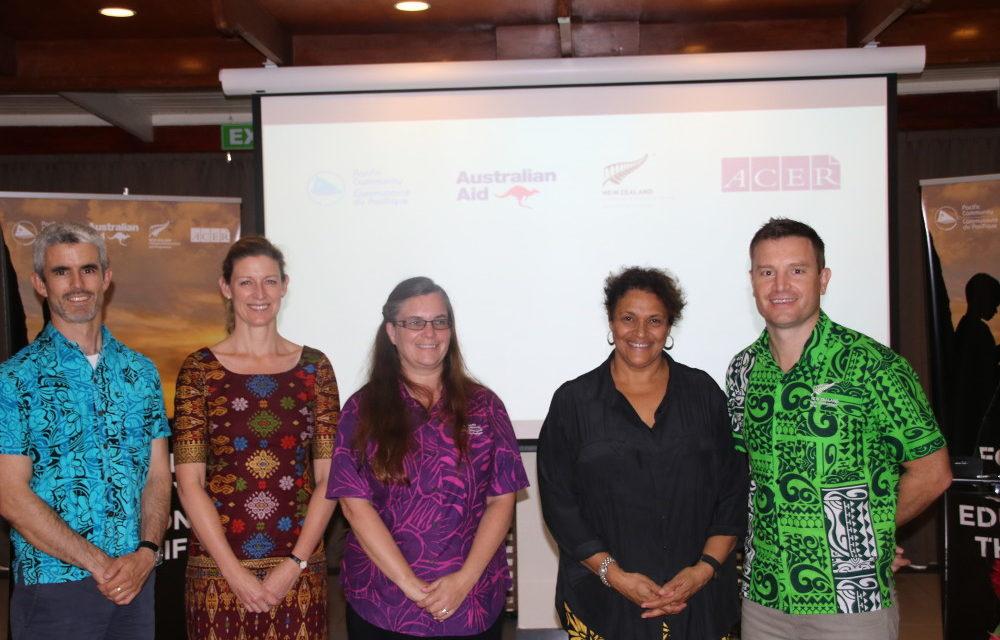The Australian and New Zealand governments, together with the Australian Council for Educational Research (ACER), have formalised a €12.8 million commitment with the Pacific Community (SPC) towards education in the Pacific region. This commitments extends to 2023.
The Australian government has committed €9.8 million ($AUD 15.5 million) over five years and the New Zealand government has committed €2.9 million ($NZD 5 million) for the next three years. This funding, as well as a technical partnership with ACER, puts SPC in a solid position to serve educational needs in the region.
The partnership will directly contribute to the 6 education outcome areas that were identified by SPC and its partners as priorities for the Pacific: raising student achievement in literacy and numeracy; improving teachers’ and principals’ accountabilities; benchmarking factors contributing to educational quality; increasing the education system’s capacity to use high quality data; strengthening national accreditation and assessment systems; and providing high quality programmatic technical services and policy advice.
Speaking at the announcement event, the Deputy Director-General of the Pacific Community, Dr Audrey Aumua, said, ‘This commitment sets a precedent for regional education collaboration. It provides stability and long-term sustainability in addressing the SPC’s education goals and will make a major contribution to regional and national education priorities.’
The Australian High Commission’s Counsellor for regional development cooperation in Fiji, Mr Gordon Burns, said this new partnership builds on the Australian government’s commitment to supporting quality education in the region.
‘Australia is proud of its long history supporting targeted projects with the Pacific Community’s Education Quality and Assessment Programme (EQAP). This new partnership extends our current relationship to support work across SPC’s entire education programme, positively contributing to human resource development through increased opportunities for Pacific Islanders to access high quality education and training,’ said Mr Burns.
The New Zealand Aid Programme will also be directly supporting these areas of work. This new partnership extends its support on the first and second cycles of the Pacific Islands Literacy and Numeracy Assessment (PILNA) to the wider programmatic work on education.
New Zealand High Commission’s Counsellor for Development in Fiji, Mr Jonathan Rowe, said that New Zealand was very pleased to enter into this partnership with EQAP, alongside the Department for Foreign Affairs and Trade (DFAT) and ACER.
‘This new arrangement marks the next phase of what has been a very successful relationship with EQAP to date and demonstrates our shared commitment to supporting education quality. EQAP is a valued partner for MFAT and we look forward to working with them in a more sustainable, coordinated and strategic way,’ said Mr Rowe.
ACER has a long history of supporting innovative SPC initiatives, most recently on the analysis and reporting for PILNA 2015. This new partnership formalises the relationship and highlights the commitment of ACER to education in the region.
Chief Executive Professor Geoff Masters AO said, ‘ACER has a long history of supporting education in the Pacific and is pleased to enter into a technical partnership that is working towards making a longer term impact on the improvement of learning informed by research-based knowledge from the region.’
Media contacts:
Solo Matthewsella, Communications Officer [email protected]
